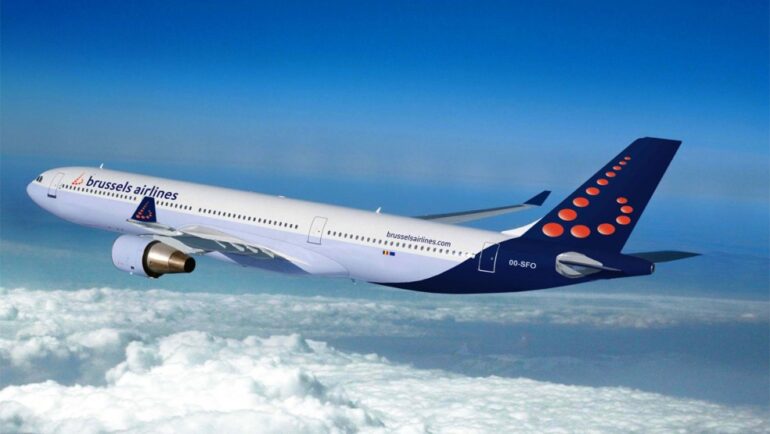Now that the travel sector is slowly picking up speed again, people suffering from fear of flying are also seeking help more frequently. That is why behavioral therapists from The Human Link and Belgian carrier Brussels Airlines are again organizing a ‘Fear of Flying’ course for the first time in four years. Remarkably, participants can now be counselled using Virtual Reality (VR), which is a first. “VR makes the threshold even lower to get on an accompanied flight afterwards and give your fear a place,” it is said. More than eight in 10 participants are able to travel by plane carefree after completing the course.
Last summer, people in Belgium already travelled as much as before the Covid pandemic, according to research by Statbel. And the number of plane trips to and from Brussels Airport is also gradually picking up. “Almost logically, there are again more requests for help from people with a fear of flying,” says psychologist and behavioral therapist, Marieke Impens of The Human Link. “These are people from all walks of life, from teenagers to those in their seventies. And it’s really not just business travelers. Think of parents whose children go abroad to study with Erasmus, or people who have found a partner they love dearly and who wants to see the world. Some even work in the aviation industry and are suddenly constrained by fear.”
To meet the demand, The Human Link is organizing another ‘Fear of Flying’ course at the end of March, in collaboration with Brussels Airlines, for the first time in four years. “The course was created back in 2006 in collaboration with the Ghent University and is scientifically based. The success rate was always above 80 per cent,” says Marieke Impens. “Due to the Covid pandemic, we put the course ‘on hold’ for a while, but continued tweaking our approach. This has given us even more insight into how fear works and we are convinced that we can now counsel people with fear of flying even better.”
A program in three parts, with the opportunity to use Virtual Reality
The program consists of three parts. First, an interview with one of the therapists takes place to properly assess whether the course is the most appropriate step for that individual. Then, at the end of March, the course itself takes place. “First, participants come to Brussels Airlines in Zaventem for a full day. In the morning, a pilot first immerses you in the world of aviation – how does a plane stay in the air, what exactly is turbulence, etc,” says Luc Michiels, trainer and pilot at Brussels Airlines. “The other half-day is spent on concrete exercises with therapists to deal in a different way with the feelings passengers have when they are anxious.”
New in the program is that participants will also have the opportunity to practise in a plane using Virtual Reality. “This makes everything more realistic and ultimately also lowers the threshold,” Marieke Impens says. “So on the second day of the course, we board a real plane. Per three participants, one therapist accompanies them. He or she helps them to deal with their fear in the right way, which will program their brain differently. They learn to make their own choices again, instead of letting fear determine these choices. By allowing them to experience that flying – without all the ‘safety devices’ they have made their own over the years – does end well after all, anxiety often subsides fairly quickly.”
No ready-made tips working for everyone
There are no ready-made tips that work permanently for people suffering from fear of flying, according to the specialists at The Human Link. “In the short term, tips like ‘don’t drink caffeine’ may help, but unfortunately they do more harm than good in the long term. Above all, you need to realize that it really is okay to be anxious. Your body needs to be able to experience that you can get off a plane in one piece, even without any gimmicks.”

